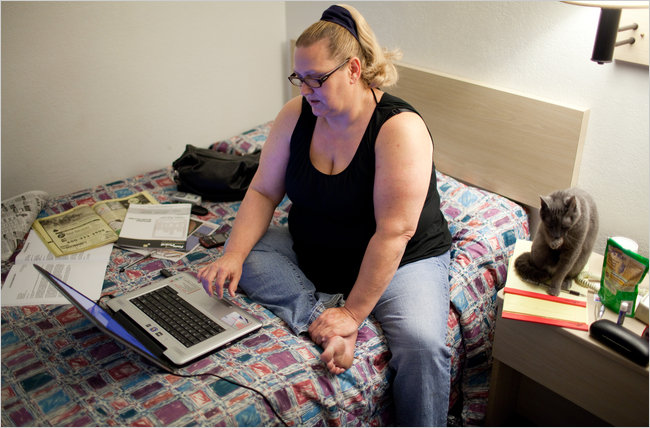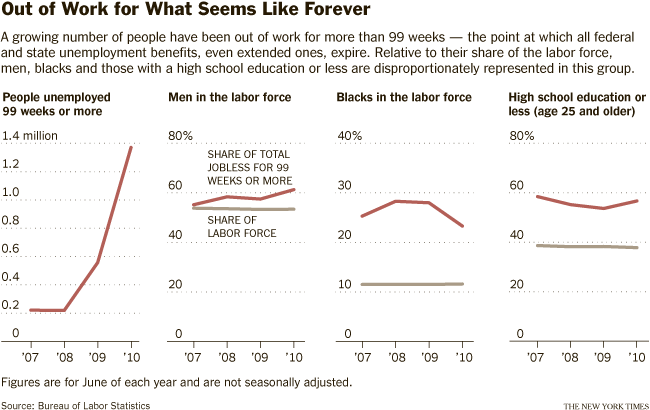| Want to send this page or a link to a friend? Click on mail at the top of this window. |
More Special Reports |
| A SPECIAL SECTION: Haiti since the January 12, 2010 Earthquake |
| Posted August 3, 2010 |
| National |
|
||||
|
|
||||
 |
||||
|
MATTHEW CAVANAUGH FOR THE NEW YORK TIMES |
||||
| Alexandra Jarrin, who is unemployed, worked on her job search and cared for her cat from a motel room, in Brattleboro, Vt. |
|
By MICHAEL LUO |
 |
| Wehaitians.com, the scholarly journal of democracy and human rights |
| More from wehaitians.com |